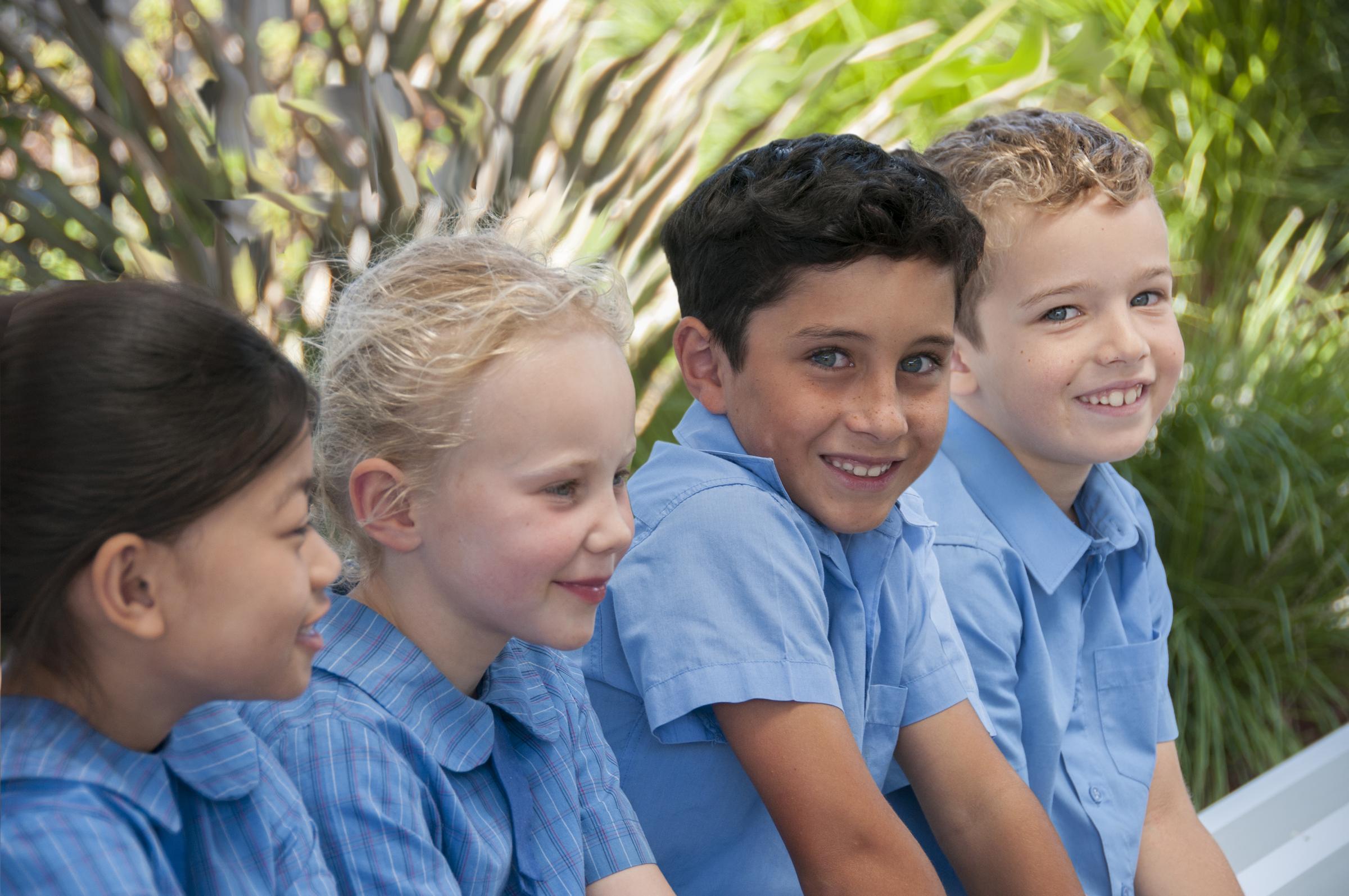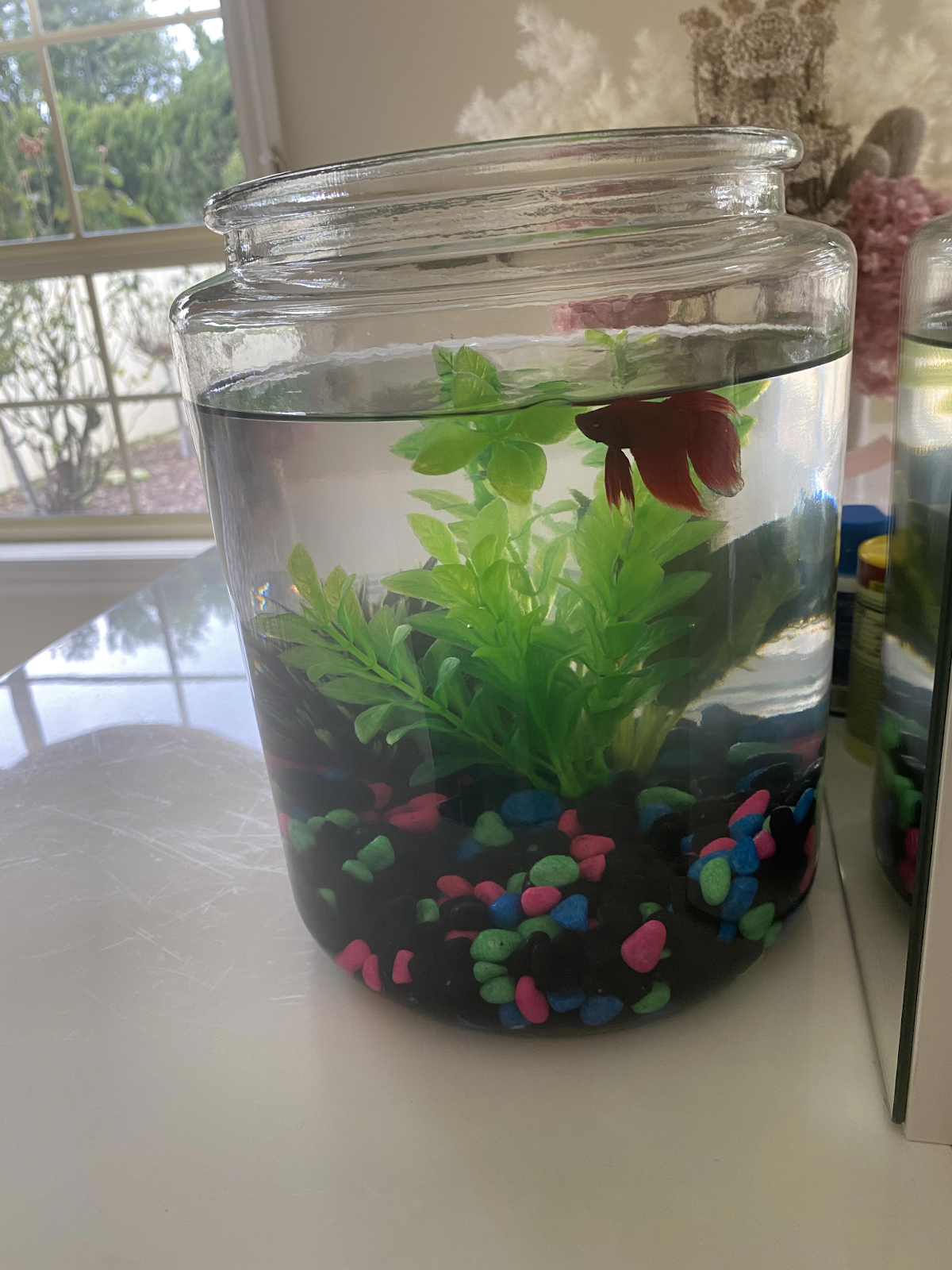Student Well-being

Community Spotlight: Year 1/2 Community
Focus: Luna the Community Fish
This term, students in the Year 1/ 2 Community welcomed a new member, Luna. Luna is a red male siamese betta fish that has brightened up a section of Miss Borg’s space. The students are learning how to care for Luna by feeding him, changing his water, and watching his behaviours in his habitat. During our wellbeing remote learning sessions, we are talking about Luna and telling him about a positive or challenging moment of our day. To finish our wellbeing session we completed two GoNoodle dances to get the students' bodies moving in a fun and engaging way.
Well-being during the Pandemic
So we have found ourselves in yet another lockdown. Although our children are quite familiar with the rules and routines of a COVID-19 Lockdown, another lockdown may spark some new discussions and questions.
Don’t be afraid to discuss COVID-19 with your children
Most children will have already heard about coronavirus. Parents and carers should take the opportunity to talk to them about the current situation.
Honest and regular communication is key. Not talking about something can make children worry more.
Children often rely on their friends and social media for the news. Parents and carers can help by positioning themselves as a trusted source for information and as a person who can help children with their questions.
Adapt information based on your child’s age
Try to remain calm and positive when talking to your child. Think about your child’s age. Offer information using language and examples they’ll understand.
It’s okay if you can’t answer everything – and to say you’re not sure. Use this as an opportunity to find out information together. Being available to your child is what matters.
Be careful not to share too much information all at once, as this may be overwhelming. Avoid talking in a way that could make your child feel more worried.
Be guided by your child
Ask your child to tell you anything they may have heard about COVID-19, and how they feel about this situation. Check-in with your child often. Give them opportunities to ask you questions over the coming weeks and months.
Some children will worry more about others than themselves. Find ways for them to connect with family and friends as much as possible using technology.
Be reassuring. Tell children that the changes in their life have been introduced to make us all safer. Tell them that eventually, things will go back to normal.
Be aware of the language you use with your child while you're around them. Remember that children will be listening to adult conversations more than usual.
Don’t dismiss your child’s fears. It's understandable for them to be concerned because they have probably never experienced anything like this before.
Tell your child that doctors and scientists all around the world are working really hard to learn more about COVID-19 and to keep us safe.
Remember to look after yourself
This situation can be stressful – regardless of your age. To look after the people you love, you also need to look after yourself.
If you notice that you're feeling anxious, take some time to calm down before having a conversation or answering your child’s questions.
If you're feeling worried, tell your child that you will find some information and talk to them soon.
Take care and stay safe.
Lauren Borg
Student Wellbeing Leader


